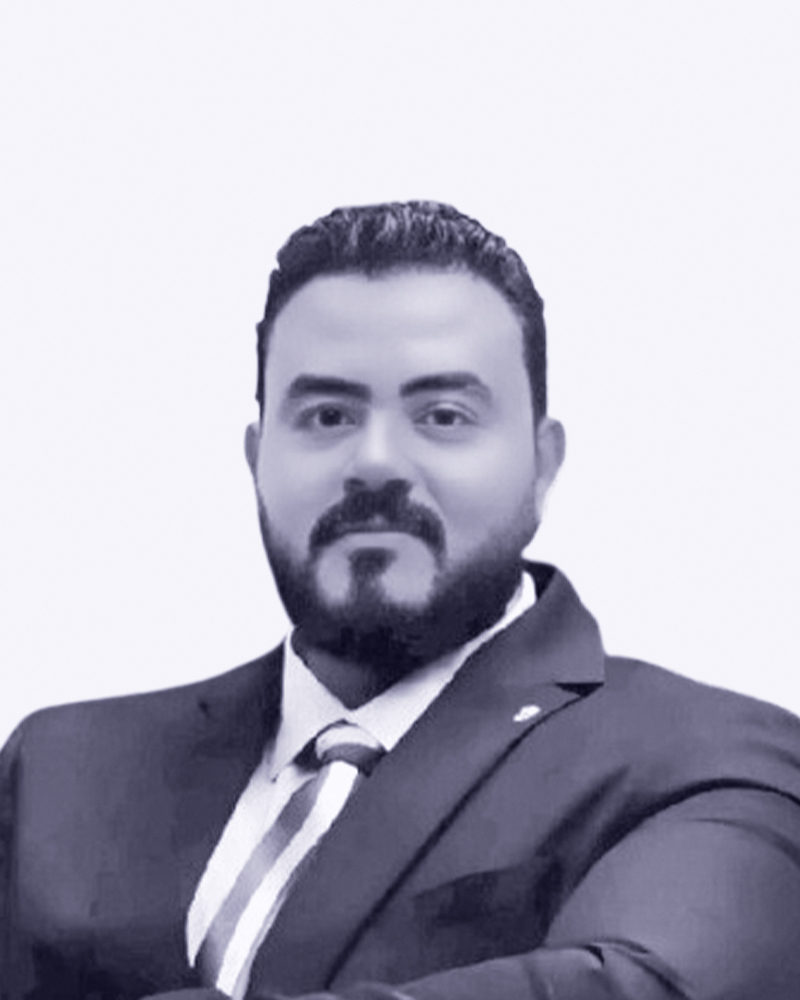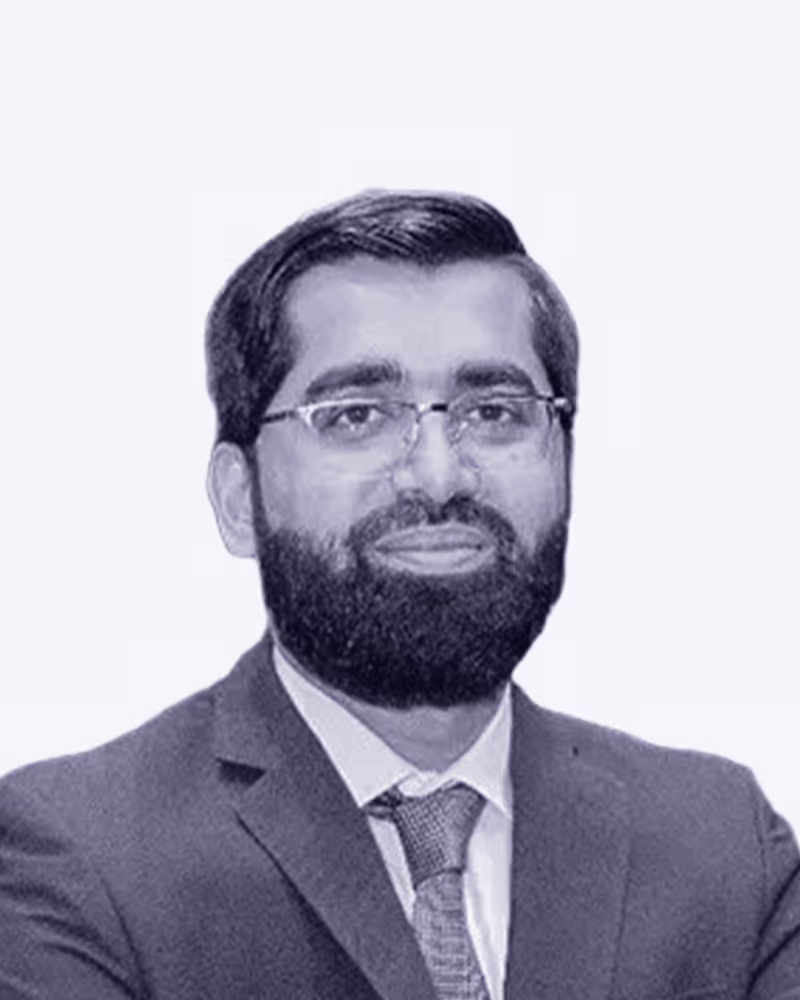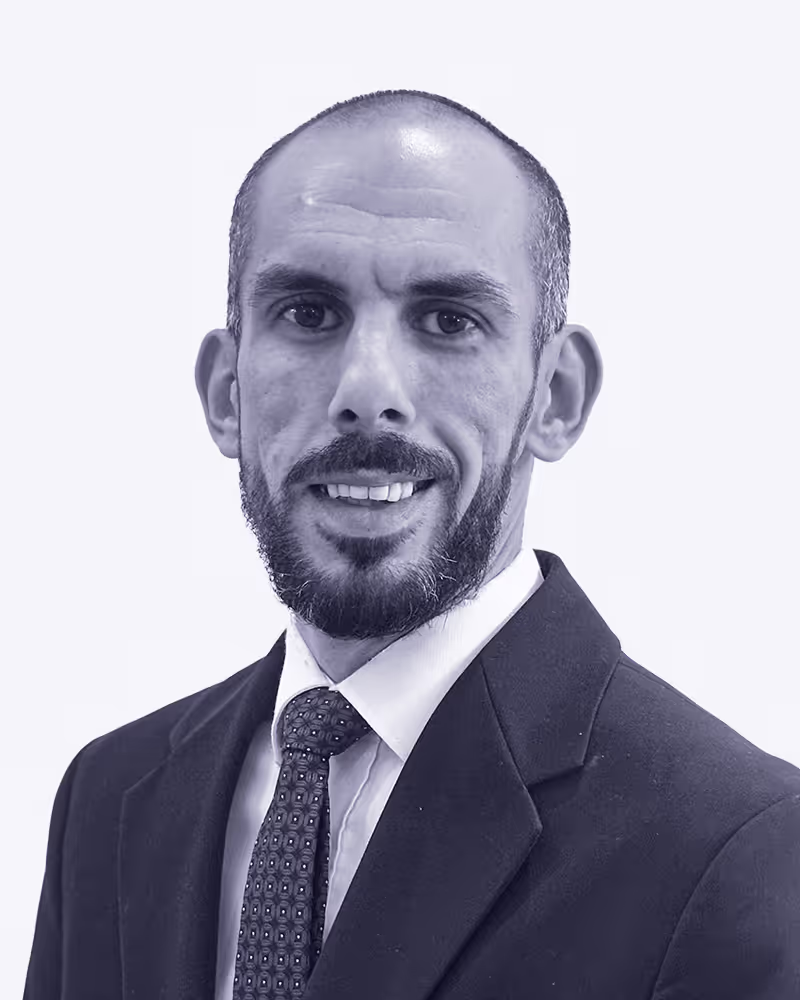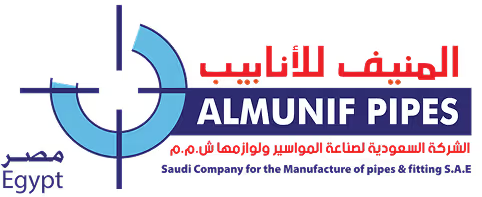الرئيس التنفيذي للمستقبل
الشرق الأوسط
اكتشف المجتمع الأسرع نمواً لخبراء المالية في الشرق الأوسط! انضم إلينا لخوض نقاشات ثرية، والمشاركة في فعاليات حصرية، والاستفادة من فرص تواصل كبيرة وبناء علاقات مهنية مميزة، حيث تنتظرك رؤى قيّمة تعزز مسيرتك في عالم المال و تفتح لك آفاق المستقبل.
اللقاءات المالية
ورش عمل حضورية، وجلسات تواصل اجتماعي، وندوات مباشرة عبر الإنترنت تركز على موضوعات أساسية في التمويل والمحاسبة.
المجتمع الإلكتروني
مجتمع نشط على واتساب ومساحة مخصصة لتبادل الاستراتيجيات وفرص العمل.
مواد تعليمية
مقابلات مع خبراء، ومقالات شاملة، وأدلة مُعدة لمساعدة قادة القطاع المالي.
بنك الوظائف
منصة وظائف مُختارة بعناية تربط المتخصصين الماليين بفرص عمل مناسبة وموارد لدعم نموهم المهني.
تواصل مع أفضل الخبراء في المجال المالي من الشركات التي تشهد تطوراً سريعاً في منطقة الشرق الأوسط














فعاليات الآن
كل ما يخص التكنولوجيا المالية في مكان واحد.
شارك في حوارات مع الرؤساء التنفيذيين للمستقبل
أبرز القادة في منطقة الشرق الأوسط يناقشون مستقبل القطاع المالي.




“Launching a startup is an emotional education. Investors may reject you, products may fail, but your purpose must stay intact.”

Tell us a little bit about your journey and how did you get here?
My journey started in Egypt, where I built my basic skills working across industries like manufacturing, construction, and logistics. I began as an accountant and gradually moved into senior roles. I’ve always been curious, not just about the numbers, but how businesses operate from the inside. In 2013, I had a major turning point. I moved to Saudi Arabia and started leading finance teams, setting up ERP systems, and working on long-term financial planning. I got the opportunity to work across sectors including trade, and now healthcare, so I’ve experienced both traditional finance and fast-growing business environments.
Along the way, I earned my CMA and CSCA certifications, and recently completed an MBA from an online university in the U.S. These helped me sharpen both my technical skills and strategic thinking. Most recently, I started a company called Bright Talent Acquisition. It's a sports tech startup based in Saudi Arabia. We built an online platform called Here’s My Talent, which connects football players, amateur and professional, with clubs looking for new talent. That’s the journey that brought me to where I am today.
Today you're both a CFO at TrustMed and founder of a sports tech startup. How do you personally balance the structure of finance with the uncertainty of building a startup from scratch?
It’s not easy, it really is a daily juggling act. At TrustMed, as CFO, I work in a structured environment with clear deadlines, rules, and data-driven decisions. My focus is on running the company smoothly, keeping it financially healthy, and ensuring growth. With the startup, Bright Talent Acquisition, it’s a completely different world. Things change quickly, and there’s a lot of uncertainty. You’re constantly learning, even from a user comment or an MVP test. You often don’t have clear answers. In the CFO role, you have solid data. In a startup, you have to move fast and be okay with imperfection. What helps is mentally separating the two roles. I apply structure and discipline from my finance background where it helps, but also give myself room to be flexible and creative in the startup space. Interestingly, my CFO skills, budgeting, risk planning, have been very useful in the startup. It’s not about choosing between structure and chaos; it’s about using the right approach at the right time.
Despite having such a vast background in finance and planning, what’s one thing about launching your own startup that was very unexpected?
What caught me off guard the most was how emotionally intense entrepreneurship is. In finance, we often operate within a rational framework, there are profit margins, forecasts, KPIs. But when you launch something of your own, it becomes incredibly personal. No spreadsheet can prepare you for how it feels when an investor says no, or when your first version of the product doesn’t land as expected. You deal with bugs, unexpected feedback, and a lot of uncertainty. It’s a completely different experience from working in a structured CFO role. I also underestimated how much soft influence is needed early on, you’re not just convincing customers, you’re convincing your team to believe in your vision, often before there’s any revenue or traction. While my finance background helped keep me grounded, nothing prepared me for the emotional rollercoaster. I had to learn how to ride it, with resilience and a strong sense of purpose.
You’ve implemented multiple ERP systems. What’s something you had to unlearn when it came to building financial systems for your own startup?
It’s something a lot of finance people struggle with when moving into startups. In a corporate setting, we’re trained to build systems that last, with defined hierarchies, audit trails, and detailed documentation. That’s valuable, of course. But in a startup, that mindset can slow you down. I had to unlearn my obsession with building the perfect system. I focused instead on building what’s useful today. For example, in Here’s My Talent, I started with Google Sheets and a basic analytics dashboard. What mattered most was visibility, not perfection. Later, once we validated parts of the business model, we began layering in automation and integration. Just a few days ago, we published our MVP product and it landed successfully.
The lesson: don’t build for scale before you’ve earned the right to scale. First, validate.
When you're hiring for finance roles, what’s something you always look for beyond just what’s on their resume?
Beyond technical skills, I look for intellectual curiosity and adaptability. In a dynamic setting, you need people who don’t just follow processes, they question them. I value candidates who ask: Why are we doing it this way? How can we do it better? That shows they’re using their mind. Adaptability is critical. Growth and transformation require people who can learn, unlearn, and adjust quickly. I also place high value on emotional intelligence. Finance doesn’t operate in isolation, you need people who can communicate across teams, handle ambiguity, and stay focused under pressure. These are the qualities that drive real impact beyond the numbers.
You’ve led teams through change. What’s one lesson you’ve learned about getting people to actually adopt change and not just tolerate it?
Change management is where many good ideas fail. The biggest lesson: people are far more likely to embrace change when they feel ownership. Top-down mandates often create resistance. But when you involve the team early, ask for input, address concerns, and give them a role in shaping the outcome, you build real buy-in. How you frame the change matters too. It’s not “we’re implementing new tech to cut costs.” It’s “we’re freeing you from repetitive tasks so you can focus on strategic work”. Celebrate small wins. Break projects like ERP into phases, and celebrate after each one. Recognize early adopters. Keep the dialogue open, ask if you're on the right path. Change management isn’t just about systems. It’s about people. If you give people what they need and involve them from the beginning, the results will follow.
We’re hearing a lot about AI in finance. What’s your honest take? Where can AI really help and where does it fall short?
AI is a powerful enabler, especially in areas like automation, fraud detection, and predictive analytics. It can process vast amounts of data quickly, helping finance teams shift from manual tasks to higher-value decision-making. But AI has limits. It’s great at telling you what happened or what might happen, but it struggles with context and can’t make ethical judgments.
Finance isn’t purely data-driven. It requires strategic thinking, prioritization, and understanding the “why” behind the numbers. I see AI as a co-pilot, not an autopilot. It enhances human capabilities but doesn’t replace experience or critical judgment.
One of my friends once asked if AI would replace him. I told him no, it won’t replace you, but someone who knows how to use AI might. You need to learn how to work with it. If you don’t, it’s not AI that will replace you, it’s someone who does.
Saudi Vision 2030 is really changing how industries are moving. What shifts have you seen on the ground that feel genuinely new?
The change is real. Vision 2030 is creating visible transformation across industries.
One big shift is reducing dependence on oil and investing in new sectors like tourism, entertainment, and technology. These used to be smaller but are growing fast now. The private sector is expanding, and local companies and entrepreneurs are getting more opportunities. There’s a big focus on developing local talent, more Saudi nationals are leading projects, starting businesses, and driving innovation. It’s not just about infrastructure. It’s about building skills, ideas, and global connections, across the whole country, not just Riyadh. For example, when I launched Here’s My Talent, I needed government paperwork. I asked someone where to go, and they said, “Don’t go anywhere. Just apply online”. I got my certificate in seven days, without meeting anyone face-to-face. Everything’s digital now. ATM cards, Iqama, government services, you can get them from your phone. It’s incredibly efficient.
Looking back, what’s one transformation or project that you’re the proudest of?
One project I’m really proud of is leading the end-to-end implementation of the OODA ERP system at TrustMed. It wasn’t just a tech upgrade, it was a full business transformation. We integrated finance, HR, procurement, sales, and inventory into one centralized platform.
Manual processes were reduced by more than 60%, and reporting cycles became much faster. For the first time, leadership had real-time visibility into both operational and financial performance. They could log in and get the data instantly. This visibility helped us make better decisions early, and as a result, our sales in Q1 and Q2 of 2025 increased by over 50% compared to the same period in 2024. But the real success wasn’t the tech, it was the change management approach. From day one, we involved stakeholders across functions, built ownership, and invested in training. We identified internal champions who became advocates. That’s what made adoption stick. It didn’t just make operations smoother, it fundamentally changed how we make decisions and manage growth.
You’ve been a CFO, a founder, and a mentor. How do you define good decision making, especially when there’s no perfect answer?
Effective decision-making, especially under pressure, relies on three things: strategic clarity, judgment, and accountability. Strategic clarity means being aligned on the bigger picture. You don’t just solve the immediate issue, you make sure the decision supports long-term goals. Good judgment combines data with experience. In real life, information is often incomplete or changing. You need structured thinking and business sense to navigate that. And finally, true decision-making means being accountable. You own the outcome, communicate it transparently, and adapt when new information comes in. A good decision isn’t just about the result, it’s about the rigor and integrity behind how it was made.




“The most important thing is balancing your long-term investments with your short-term regulatory shifts which are coming in on a regular basis.”

You’ve had a dynamic career. From Big Four audit to port development and real estate ventures. Tell us a bit about your journey.
I was born and raised in Jeddah in a humble household. My father worked in Saudi Arabia for nearly 40 years, and he always believed in both education and business. Studies build a foundation, but business brings its own blessings. That philosophy has guided me throughout my life. After schooling in Jeddah, I moved to Pakistan for higher education and came across ACCA, which was still relatively unknown at the time. Inspired by a family friend, I pursued it. It wasn’t easy, I failed some papers along the way, but those failures taught me more than my successes did. Completing ACCA in four years gave me a strong foundation. Like many Asian chartered accountants, I knew the best start was with a Big Four firm. So in 2003 I joined KPMG Karachi while still finishing my last paper. A year later, I returned to Saudi to support my family, and in 2004 I joined EY Jeddah, the then leading firm in the region. Over nine years, I worked with more than 100 clients and had excellent mentors. That period truly shaped who I am today and it was the foundation of my professional journey.
After EY, how did you transition into real estate and port development?
At EY, I advanced quickly, receiving seven promotions in nine years, but the demanding lifestyle was difficult to sustain, especially after marriage. The long hours made me consider a move into industry. At senior manager level, it wasn’t easy to find suitable roles, since most people advised moving out earlier, at assistant manager or manager level, but I kept searching. Eventually, I received an offer from King Abdullah Port, a startup at the time. They were specifically looking for someone with a Big Four background to help establish proper financial systems. When I joined, there were no proper accounting systems, policies, or reports, and even the last year's audit was pending. I rolled up my sleeves and cleaned the books myself, creating a trial balance that could be audited. It was a massive change from managing teams at EY to personally entering debits and credits, but it gave me invaluable hands-on experience. Over four years, I built the finance function from scratch, but eventually I wanted to grow further. Around 2018, after a series of recruiter-led interviews, including six or seven rounds, I was offered a senior role at a joint venture between Saudi Aramco and a large local group. Despite not having CFO experience at the time, they trusted my potential, and I joined. Since then, I have been with them for almost seven years, gaining exposure to large-scale real estate development, financing, and governance at the highest level.
When you're managing long-term capital in a region like KSA, what's the biggest challenge and how do you work around it?
Managing long-term capital in Saudi Arabia comes with several challenges. First is balancing long-term projects, which often run for 20 years or more, with the short-term regulatory changes that are frequent in the Kingdom. The government continuously introduces new regulations to improve the ease of doing business and attract investment, especially in real estate, where laws are still evolving. This requires agility to adapt without losing sight of long-term goals. Second is building strong banking relationships. For long-term financing, banks must be true partners, willing to provide flexibility and support through economic cycles. Fortunately, Saudi banks are becoming increasingly supportive and competitive, which makes these partnerships possible. Third is scenario planning. In a region where economic conditions shift frequently, companies must run flexible forecasts alongside their long-term budgets to ensure they stay aligned with strategic goals. Regularly testing different scenarios helps prepare for unexpected changes and ensures that after 20 years of investment, the company is still on track to achieve its objectives.
With Vision 2030, what shifts are you seeing on the ground, and where can finance leaders really make an impact?
Vision 2030 is transforming Saudi Arabia’s business landscape and requires a complete shift in mindset. Traditionally, companies focused mainly on generating profit and cutting costs, but today’s businesses must prioritize value creation. Success depends on identifying customer pain points and solving them in innovative, technology-driven ways. For example, retail may always have supermarkets, but introducing features like self-checkout or enhanced customer experiences creates real value. The government is actively driving this transformation, with PIF launching major projects like Alat, a tech and hardware company working with global leaders, and AI-focused ventures such as Humaniq. These initiatives show that Saudi Arabia is investing heavily to ensure it is at the forefront of global innovation. For finance leaders, this means a new role: moving from policing budgets to collaborating across departments. In the past, finance would send Excel sheets to other teams, compile numbers, and later criticize variances. Now, finance leaders must work closely with business heads, using data to help them achieve their goals. Finance holds all the company’s data, so the CFO’s job is to provide insights that enable strategy, not just report numbers. The CFO role has shifted from financial reporting to becoming a true partner to the CEO and leadership team, influencing long-term strategy and guiding companies toward Vision 2030 goals.
You have led multiple ERP and IFRS transitions, but transformation is never just about systems. What’s something you’ve learned the hard way about getting people to buy into change?
Transformation often fails not because of the wrong system or software partner, but because of people. Studies show that up to 80-90% of transformations collapse due to resistance from employees, usually driven by fear. When automation is introduced, for example, automating bank reconciliations, invoice processing, or reporting, employees worry they will lose their jobs. The most important lesson I’ve learned is that leaders must communicate the “why” clearly and show employees how the change benefits them. Instead of repetitive manual tasks, they can shift toward more valuable, decision-making roles. While it’s true automation may reduce some roles, history shows technology creates more jobs in the long run, Excel, once feared for eliminating accounting jobs, instead created countless new opportunities. To succeed, leaders must involve their teams early, celebrate small wins, and give ownership of results. It’s also vital to integrate systems properly; many companies buy the best tools but fail to connect them, leading to inefficiencies. Ultimately, transformation succeeds when people are engaged, motivated, and see technology as an enabler, not a threat.
You’ve invested heavily in leadership development at places like Stanford, Harvard, and London Business School. What’s one lesson from all that learning you apply most often today?
Continuous learning is essential. I qualified as an ACCA in 2003, and since then the world has changed dramatically, especially with the rise of AI and digital technologies. Knowledge quickly becomes obsolete, so if you don’t keep learning, you stop growing. While I may not apply every detail from my courses, I now know these ideas, frameworks, and technologies exist, so when the right situation arises, I can use them. Leadership training also reinforced that technical skills are not enough at senior levels. Nobody doubts a CFO’s ability to understand accounting; what matters is how well you lead, manage teams, and influence outcomes. Soft skills, communication, collaboration, empathy, are critical, and they require constant practice, not just one course. Leadership is a long-term investment, and these lessons guide me daily in balancing strategy, people, and change.
You’ve worked across organizations with very different speeds and cultures. When you walk into a new company, how do you assess what kind of finance team it needs?
Having worked in both established giants like EY and startups such as King Abdullah Port and my current housing development company, I’ve learned that building the right team depends on the stage and vision of the organization. In startups, you often have to create the entire finance function from scratch, hiring people who can adapt quickly and work without rigid structures. The most important trait I look for is attitude. Technical skills and qualifications matter, but they can be taught or developed; attitude cannot. One of my CEOs taught me that if a person has the right mindset, openness, willingness to learn and teamwork, they can be molded to succeed. He would often hire based on attitude more than resumes, and it always worked well. That experience shaped my own approach: I want good humans with strong attitudes, because skills can be learned, but attitude drives success and resilience.
When you’re hiring, what’s one trait that tells you someone is ready for a finance role in a fast-changing business?
The key trait is willingness to roll up your sleeves and do whatever is needed, regardless of title. In fast-moving companies, especially startups, you can’t afford to be rigid about roles. When I left EY as a senior manager with teams under me, I joined King Abdullah Port where I personally passed accounting entries for months to clean up the system. Later, at my current company, I was the second employee after the CEO. For six months I ran everything on Excel alone, closing books manually and reporting to the board until we implemented ERP. Those experiences taught me that no matter your title, adaptability and readiness to get hands-on are crucial. The right person for a finance role in a dynamic environment is someone who combines professional competence with humility and a can-do attitude.
AI is entering every part of finance. Which areas are really ready for automation, and which still need human judgment?
AI is best suited for rule-based, repetitive tasks. Processes like reconciliations, invoice processing, report generation, budgeting, and forecasting, as long as rules are well defined, can be automated efficiently. These are areas where AI can save time and reduce errors. However, when it comes to judgment, ethics, or decision-making, humans remain essential. AI can only analyze patterns from historical data; it cannot think contextually or ethically like humans. Therefore, I see AI as a co-pilot rather than a pilot, a support tool that augments human decision-making rather than replaces it. The future will be about collaboration between humans and AI, using automation to handle the routine while humans focus on strategy, creativity, and leadership.
If someone had only five minutes with you, what’s the one piece of advice you’d want them to walk away with?
My three pieces of advice:
- Gratitude. Take care of your parents and responsibilities, their support has been central to my success.
- Find your niche. You can’t be an expert at everything. Focus on one area and build deep expertise (FP&A, finance business partnering, BI, etc.).
- Don’t rely only on a paycheck. Build skills or side projects that give you independence and resilience.
-
Bio
Muhammad Anis Younus is the Chief Financial Officer and Board Member of Al Fadhili Housing Company, a Saudi Aramco and MASIC joint venture. With over 20 years of experience spanning audit, ports, real estate, and infrastructure development, he has held leadership roles at KPMG, EY, and King Abdullah Port before moving into his current role. An ACCA-qualified professional, he is recognized for building finance functions from the ground up and driving long-term financial strategy.




“Acquisitions are not about now, but forever. It’s not just about winning a deal today, it’s about the long view, the trust you build, and the relationships that carry the integration forward.”

What were the most important moments or decisions that shaped your journey into the CFO seat today?
The pivotal moments were when I shifted from purely transactional finance into operational finance. I started focusing on business priorities and stakeholder challenges. That shift in mindset increased my recognition and the value I was providing. For example, when I worked with our back-office operations outside the UAE, I identified gaps not only in finance but also across other areas. Streamlining those processes increased my visibility. Later, I focused on building relationships with department heads, resolving friction points, and establishing workflows. Taking ownership of functions like HR, legal, IT, and compliance also reduced the management team’s operational load and increased my perceived value. For me, it was never about chasing a title, it was about becoming a core part of the business. Once people understood that I could connect finance, operations, and strategy, I stepped into that role of strategic business partner.
Across your career, one theme stands out: building systems. Where does that builder mindset come from, and what’s one system you’re really proud of?
That’s a very insightful question. The builder mindset comes from my personal journey. Until the end of high school, academics weren’t easy for me. I had learning difficulties and couldn’t simply memorize large amounts of information. I had to work hard to keep up. What helped me was visualizing things, breaking down complex data into flow charts and logical steps. That became second nature: taking chaos and creating clarity. As for systems I’m proud of, the first is a cash projections system I built after COVID. Agency life is unpredictable, revenues fluctuate, retainers change, expenses vary. The system collected inputs from multiple departments on different cycles, allowing us to smooth cash flow and maintain reserves. The second is our month-end closing system. We consistently close within five to seven working days, and not just procedural closings, true business performance closings. It runs so seamlessly that others don’t feel the pressure, though it requires a lot of work from the team.
You’ve led companies through mergers, acquisitions, PE rounds, and integrations. What have you learned about staying grounded and sharp when the pressure is on?
One of the biggest lessons was realizing that deals are not about the present moment, they have long-term consequences. Negotiations aren’t about winning now but about building for the future. Another lesson is that while financial and operational synergies are important, the relationships and trust built during a deal are equally critical for integration. Finally, I learned that people observe you more closely than you think. They notice how you present yourself, your vision, intention, and passion. That impression lasts. For example, the credibility I built before COVID helped me renegotiate successfully during COVID.
You said it’s important how you present yourself. Could you elaborate?
People understand your vision, your intention, and your strategic view. If they see you as reliable, they’ll trust your judgment, when you call something good, bad, or difficult. That trust is invaluable, not only during integration but also for future relationships and deals.
How do you personally approach change or transformation, and how do you keep teams aligned?
I don’t see transformation as a project; I see it as a process. I usually have more visibility into the challenges and friction points, so I prepare early. Mainly,I don’t fixate on one outcome, I play out multiple scenarios in my head, including their pros, cons, and possible obstacles. That way, when reality happens, I can pivot quickly. When it comes to teams, I don’t aim for 100% alignment. Instead, I focus on the key stakeholders most affected by the change. I keep them informed about what’s fixed, what’s evolving, and what challenges may arise. I involve them in brainstorming solutions so they’re not blindsided, and alignment at the top cascades to the rest of the teams. Each department has its own language, so communication must be tailored, not a generic corporate message.
How do you get business teams to care about governance without it feeling like a chore?
Honestly, governance can sometimes feel like a chore. But I frame it as a shared responsibility, not just finance’s responsibility. I also acknowledge it’s extra work for revenue teams, so I approach with compassion and collaboration. I keep templates flexible, the outcome matters more than rigid formats. For senior leaders, though, compliance is non-negotiable. They need to own it as part of leadership.For wider teams, I focus on making governance useful for them. For example, revenue reports help finance with forecasting but also help client teams track portfolios, plan capacity, and allocate resources. When people see the value, cooperation improves. My belief is simple: any system sticks only if all parties benefit.
Where do most finance teams go wrong in partnering with the rest of the company?
Teams often act as if they have different agendas, but in reality, everyone is working toward the same goal. There’s also sometimes a bias that values, the revenue-generating teams more than non-revenue ones, and that creates friction. I believe CFOs must actively bridge this gap by showing value, building relationships, and aligning with revenue heads so trust cascades downward. Finance teams also need to be operationally savvy, understanding the daily realities of client-facing colleagues. And most importantly, change must come from the top. If the CEO doesn’t enable finance to act as a strategic partner, no matter how capable a CFO is, integration won’t happen.
When you look at AI and automation in finance, what makes you say “yes, this is worth it”? Have you found such a tool for your finance team yet, apart from the usual ones?
Today, AI tools aren’t optional, they’re essential. Industries are evolving at an exponential pace, and businesses must adopt new tools to keep up, remain profitable, and scale. Yes, we push teams to explore and rework workflows, because tools themselves are evolving rapidly.
In finance, I look for tools that:
(1) Integrate seamlessly with existing operations,
(2) Improve productivity without adding complexity, and
(3) Operate at a foundational level, not as standalone fixes.
Standalone tools may work today but fail tomorrow as the business evolves. Right now, we use smaller add-on tools that integrate well and reduce complexity, such as DocuSign or HR platforms. A full ERP change is still on the horizon.
When you’re hiring today, what’s one quality you look for that you didn’t emphasize earlier?
I’ve always looked for curiosity to learn and the willingness to unlearn, that’s been essential for building integrated finance approaches. But today, one new priority is tech savviness. Candidates need to explore tools, test solutions, and improve productivity on their own, not wait for managers. Five years ago, I emphasized adaptability and communication more, but today, tech ability is essential.
Bio
Sireesha Venkata is the Chief Financial Officer of BPG Group, a fully-integrated marketing agency, and previously CFO of Socialize\ We Are Social Dubai. With over two decades of experience across global organizations, she has led finance teams through transformation, integrations, and growth journeys. Recognized for building systems that streamline operations and for driving finance beyond reporting into strategy, she continues to champion resilience, foresight, and collaboration as hallmarks of the modern CFO.
.avif)


"لن تتعلّم حقًا ولن تنمو إن لم تواجه تحديات جديدة. أعتقد أن ذلك هو السبيل الوحيد للتطور."
.avif)
كان عندك مسيرة مميزة جدًا أخذتك من لبنان لأمريكا والآن للسعودية. تقدر تمشي معنا في رحلتك وتذكر أهم اللحظات اللي شكّلتها؟
بدأت مسيرتي في المالية وعمري صغير، كنت أشتغل دوام كامل وأنا في الجامعة مع مجموعة نفط وغاز مقرها لوكسمبورغ. التجربة عطتني خبرة مبكرة في التقارير الدولية، ومعايير المعايير الدولية لإعداد التقارير المالية، والتجميع العملي، وهذا كان شيء نادر وقتها خصوصًا في لبنان.
بعدها تنقلت بين قطاعات مختلفة: الترفيه، الأكل والشرب، العقار، والطاقة المتجددة، وكل قطاع له تحدياته وتجارب التعلم الخاصة فيه.
من أهم المحطات كانت مع شركة NES، لما مسكت منصب المدير المالي التنفيذي المؤقت للفرع الأمريكي، وأشرفت على العمليات في دول الشمال الأوروبي وأوروبا الوسطى.
كان مجال جديد عليّ: معايير المحاسبة الأمريكية، العدادات الذكية، والتدقيقات الدولية. لكن قلت "نعم" قبل لا أفكر كثير.
هذي التجربة علمتني إنك تكبر بسرعة لما تقبل شيء ما أنت مستعد له 100%.
ومؤخرًا، انتقلت مع عائلتي للسعودية عشان أقود المالية للشرق الأوسط في Assystem Radicon. كان تغيير كبير في حياتي، لكنه القرار الصح لمستقبلي المهني والشخصي.
قمت بقيادرة المالية عبر قارات وصناعات وتحولات كبيرة. لو أحد سألك: "أي نوع من المديرين الماليين التنفيذيين أنت؟" كيف توصفين أسلوبك؟
ما أحب أحط مسميات، اللي يهم هو كفاءتك من عدمها. في المالية، التقدم ما يعتمد بس على الخبرة؛ هو مزيج من المهارات التقنية، وفهم البزنس، والتفكير الاستراتيجي.
أوصف نفسي إني قائد استراتيجي في التحول، وفي نفس الوقت عملي ومباشر. أؤمن بالتعلم المستمر والبقاء على اطلاع، لأن العالم يتغير أسرع مما نتوقع.
الأرقام مو مجرد "مدين ودائن"، هي تحكي قصة، وأنا أشجع فريقي يشوفونها بهالطريقة.
حتى المحاسبين المبتدئين ما المفروض يفكرون ككتبة حسابات بس.
ما تقدر تنجح لوحدك في هالدور؛ تحتاج فرق قوية ومدعومة.
خصوصًا في الشركات الصغيرة والمتوسطة، كونك عملي ما يعني إنك تدير كل التفاصيل الصغيرة، بل إنك تكون مطلع ومشارك وتفهم الصورة الكاملة.
بدأت مشوارك من كونك في منصب كبير محاسبين إلى مدير مالي تنفيذي عبر عدة دول. وش الدرس القيادي اللي تتمنى لو تعلمته بدري؟
الدرس القيادي اللي ودي لو تعلمته بدري هو كيف أتعامل مع النقد. بالبداية حتى الملاحظات البنّاءة كانت تضغطني، مو ظاهر للناس، لكن داخليًا.
مع الوقت، استوعبت إن النقد الصحيح هو أكثر شي يساعدك تنمو وتتطور.
كنت برضه أتصرف بسرعة وأتعصب أو أزعل بسهولة. لكن مع النضج تعلمت أوقف شوي، آخذ وقتي، وأرجع للموضوع بعقل أهدأ.
درس ثاني مهم جاني من مدير سابق قال لي: "ما فيه أحد لا يُستغنى عنه". وقتها ما تقبلتها تمامًا، لكن الحين فاهم إن مهما كان تأثيرك كبير، الحياة والبزنس يستمرون.
النظرة هذي صارت جزء من قناعاتي وباقية معي.
في NES قدت إعادة هيكلة ديون وأعمال كبيرة. لما تقود شركة وسط حالة عدم يقين مالي، وش المبدأ اللي دائم ترجع له؟
وقت مواجهة عدم اليقين المالي، المبدأ اللي دائم أرجع له هو إدارة الكاش. مرة عرضت شريحة لمجلس الإدارة فيها شجرة تطلع دولارات وقلت: "ليت هذا حقيقي، لكنه مو كذا".
لازم تدير رأس المال العامل بشكل صحيح، تجمع المستحقات، تخطط للمدفوعات، وتتحكم في التكاليف بطريقة ذكية.
هذا ما يعني إنك تقلص الموظفين بشكل عشوائي؛ الحلول السريعة ممكن ترجع عليك بنتائج عكسية.
إدارة المخاطر مهمة بنفس القدر. الخطر الحقيقي هو إنك ما تستبق المشاكل.
واجهت مواقف اضطرّيت فيها أدير التدفق النقدي يوميًا، والتوقعات المتجددة ضرورية جدًا.
الوصول لمصادر تمويل متنوعة برضه مهم، حتى لو ما تحتاجها اليوم، لازم تكون مستعد.
والعلاقات لها وزن كبير، خصوصًا في منطقتنا. كثير من المدفوعات تعتمد على العلاقات الشخصية، لذلك التواصل القوي مع أصحاب المصلحة والعملاء والموردين أساسي.
وأخيرًا، الإيرادات المتكررة تعطي استقرار، لو جزء من البزنس تعثر، جزء ثاني يقدر يشيل الحمل.
الموضوع ما هو حل واحد؛ هو دورة كاملة من التخطيط، والرؤية المستقبلية، وبناء العلاقات الذكية.
مع شح السيولة وارتفاع تكاليف الاقتراض، كيف صرتِ تفكرين في التدفق النقدي بشكل مختلف اليوم؟ وبرأيك وش الممارسات اللي لازم فرق المالية في الخليج تتبناها أكثر؟
مع ضيق السيولة وارتفاع تكاليف الاقتراض، أعرف إن لازم أفكر في التدفق النقدي بمرونة وبُعد نظر أكبر.
التوقعات الشهرية الثابتة ما عاد تكفي، أنا وفريقي نحتاج توقعات متجددة ورؤية شبه فورية عشان نكون مستعدين دائمًا.
وأدرك برضه أهمية تنويع مصادر التمويل، حتى لو السيولة ما تبان مشكلة مباشرة.
بالنسبة لي، الأتمتة لازم تستلم المهام المالية الروتينية مثل معالجة الفواتير والتسويات، عشان فريقي يركز على الأهم: التخطيط الاستراتيجي وتحليل السيناريوهات.
وخصوصًا هنا في الخليج، حيث الثقة تلعب دور كبير في قرارات الأعمال، تعلمت إن الحفاظ على علاقات قوية مع المورّدين، العملاء، والشركاء الماليين يعطينا مرونة حاسمة وقت الأزمات.
الذكاء الاصطناعي والأتمتة قاعدين يغيرون طريقة عمل فرق المالية. وش المجال اللي التقنية فرقت فيه مع فريقك؟ وأين يظل الحكم البشري هو الأهم؟
الحسابات الدائنة مثال واضح على كيف الأتمتة تساعد. طبقنا أنظمة تأتمت إدخال الفواتير، تخطيط المدفوعات، ومهام ثانية مرتبطة بالذمم الدائنة في السياق المحاسبي الرسمي. هذا وفّر وقت وقلل الأخطاء.
وبرضه سمح لفريقنا يركز على أعمال أكثر قيمة، مثل التحليل، والتقارير، والتخطيط.
حاليًا نستكشف أدوات مثل Power BI وCopilot تساعدنا في التحليلات والتقارير. صحيح ما وصلنا للمرحلة الأكثر تقدم، لكن قاعدين نقيم هالأدوات عشان نعرف وش القيمة اللي ممكن تضيفها.
لكن مع كل هذا، يظل الحكم البشري أساسي. التخطيط، التحليل، والاستراتيجية تحتاج شخص.
تقدر تأتمت جمع البيانات، لكن تحويل الأرقام لخطة أو صياغة القصة اللي وراها؟ هذا دور الإنسان.
المالية في النهاية تتمحور حول الإجابة على: وين حنا الآن؟ وين نبي نوصل؟ وكيف نوصل هناك؟
لما توظفي في فريق المالية عندك، وش تفضل أكثر: شخص يعرف الأرقام من وإلى؟ ولا شخص ما يخاف يعبّر عن رأيه؟ بمعنى آخر: المهارات التقنية ولا المهارات الناعمة؟
المهارات الناعمة، بلا شك. المهارات التقنية ممكن الواحد يتعلمها. لكن النزاهة والشخصية ما تنزرع بالتدريب.
دايم أسأل المرشحين: لو أخذت قرار وأنت ما توافقني عليه، وش تسوي؟ أفضل إجابة تجيني من اللي يقول: أتكلم باحترام، أشارك وجهة نظري، وإذا لزم أكتبها.
واحد أعطاني هالإجابة، ووظفته. واليوم هو مراقب مالي في فريقي.
أبغى ناس يتحدوني، يسألون، خصوصًا إذا فيه شيء مو واضح. مو كافي بس تنفذ التعليمات.
لو أحد يعرف، مثلاً، إن المعالجة الضريبية خطأ في بلد معين وما قال شيء، فهو ما يسوي شغله صح.
المهارات الناعمة تشمل الأخلاقيات برضه. هذي مو أشياء تقدر تعلمها في دورة تدريبية. يا تكون موجودة في الشخص، يا ما هي موجودة.
طبعًا نقدر نوجّه وندعم الخريجين الجدد. لكن النزاهة الأساسية لازم تكون موجودة من البداية.
السيرة الذاتية
تشغل ليال الحسني منصب المديرة المالية التنفيذية للشرق الأوسط في شركة Assystem Radicon، وهي شركة رائدة في مجال الهندسة وإدارة المشاريع تقود التحول في قطاع الطاقة وتطوير البنية التحتية في مختلف أنحاء المنطقة.
بخبرة تمتد لأكثر من عقدين، أدارت ليال المهام المالية في كل من لبنان والولايات المتحدة والمملكة العربية السعودية، وعملت في قطاعات متنوعة تشمل النفط والغاز، الترفيه، العقارات، الطاقة المتجددة، والعدادات الذكية.
تُعرف ليال بفكرها الاستراتيجي، وقيادتها العملية المباشرة، وقدرتها على التعامل مع التحديات المالية المعقدة بوضوح ونزاهة.
تؤمن ليال بأهمية بناء فرق قوية ومُمكّنة، وقيادة التحول من الصفوف الأمامية، واستخدام المالية ليس فقط لرصد الماضي، بل لصياغة المستقبل.




لم تكن أكبر التحديات في الإجراءات ذاتها، بل في تغيير طريقة التفكير، وخاصةً عندما...

نحب نعرف وش العوامل اللي فعلاً شكّلت مسارك المهني وأثرت فيه؟ تقدر تعطينا إجابة بسيطة؟
بالبداية، الناس يختلفون في وش يعتبرونه محطات أساسية. فيه اللي يقول التعليم أو الحصول على شهادة هو نقطة التحول. بالنسبة لي، التغيير الحقيقي كان فرصة، لأني شخص يحب يطلع أبعد من صميم العمل ويتعلم من الأقسام الثانية.
للأسف، مو كثير من الشركات تتقبل هذا الشي، لكن أنصح الكل يغتنم هالفرص لأنها تعطيك معرفة ومهارات، ومن هنا تبدأ رحلة التغيير.
وهذا اللي صار معي. غيري ممكن تكون عنده إجابات مختلفة، لكن أنا أشوف إن فرصة التغيير تكمن في إنك تبذل جهد أكبر وتسعى للمعرفة أكثر.
وش اللي صار؟ وليه قررت تنتقل للسعودية؟ وكيف كانت رحلتك من الأردن للسعودية؟
السعودية سوق كبير فيه فرص كثيرة ونمو عالي. أنا بدأت في السوق المحلي بالأردن وبعدها انتقلت.
السعودية تعطي فرص أكثر من غيرها، وهي سوق واعد، والحمد لله إني لسه هنا لأنها تملك مستقبل كبير.
كيف توصف دورك خلال مرحلة التحول في شركة المنيف للأنابيب؟ وش أبرز التحديات اللي واجهتك في إقناع الإدارة؟ وكيف يقدر المتخصصين الماليين يتعاملون بفعالية مع هالتحديات؟
السعودية سوق كبير فيه فرص كثيرة ونمو عالي. أنا بدأت في السوق المحلي بالأردن وبعدها انتقلت.
السعودية تعطي فرص أكثر من غيرها، وهي سوق واعد، والحمد لله إني لسه هنا لأنها تملك مستقبل كبير.
كيف توصف دورك خلال مرحلة التحول في شركة المنيف للأنابيب؟ وش أبرز التحديات اللي واجهتك في إقناع الإدارة؟ وكيف يقدر المتخصصين الماليين يتعاملون بفعالية مع هالتحديات؟
في هالمرحلة، كان دوري محوري في قيادة الانتقال من شركة عائلية إلى شركة تُدار بهياكل حوكمة رسمية ومعايير شفافية، استعدادًا لدخول السوق المالي.
أكبر تحدي ما كان في الإجراءات نفسها، بل في تغيير العقلية—خصوصًا فيما يخص مشاركة البيانات المالية وإضفاء الطابع المؤسسي على اتخاذ القرار.
صحيح البعض يشوفه صعب، لكن لحسن الحظ إدارتنا كانت متفهمة ومدركة أهمية هالتحول.
إقناع القيادة ما هو سهل دائمًا، خصوصًا لما يتطلب الكشف عن معلومات كانت تعتبر سرية قبل.
عشان كذا لازم الخبير المالي يقدر يوضح المفاهيم والسياسات بشكل مهني وواضح، وبأسلوب يناسب خلفية اللي قدامه—خصوصًا إذا ما عنده خبرة مالية.
اليوم الشفافية تعني إشراك الشركاء والمستثمرين في المعلومة، والتواصل الواضح هو المفتاح لتحقيق هالشي.
هل تشوف إن الإدارة متفهمة جدًا؟
نعم. إذا الإدارة مدركة لهذا الشي، بيكون عون كبير، من اتخاذ القرار إلى مشاركة المعلومات المالية اللي كانت سرية قبل وصارت الآن معلنة.
إقناع الإدارة بهالموضوع مو سهل. وإذا ما استوعبوا، يتحول لأصعب تحدي.
أستاذ محمد، قضيت سنوات طويلة في القطاع الصناعي. وش أبرز التحديات اللي يواجهها العاملين في القطاع المالي؟
القطاع الصناعي يُعتبر من أصعب القطاعات على الماليين، لأنه يعتمد بشكل كبير على محاسبة التكاليف والقرارات الإدارية، وهي بطبيعتها معقدة.
وفيه تحديات مرتبطة بتنوع التكاليف وصعوبة اتخاذ القرارات داخل هالقطاع.
خلال مسيرتك، إذا بنتكلم عن تجربتك، كنت في الولايات المتحدة تشتغل على مهام مالية جماعية. وش أهم درس تعلمته؟
أدركت إن القادة في الشركات لازم يتكلمون بلغة وحدة، لأن الشركات التابعة لمجموعة وحدة ممكن تشتغل أحيانًا في دول مختلفة. عشان كذا المرونة وتوحيد أسلوب التواصل شيء أساسي. وبرضه الاستقلالية في إعداد التقارير وطرق التواصل تسهّل الأمور كثير. هذا درس تعلمته وما زلت أطبقه لين اليوم.
خلينا ننتقل من الاقتصاد للسيولة النقدية مع ارتفاع التضخم وانخفاض البطالة. وش رأيك في إدارة التدفقات المالية؟ وهل فيه ممارسات تنصح فيها المديرين الماليين؟
إدارة التدفق النقدي بسيطة كمفهوم، كل الموضوع عن توقيت دخول وخروج الكاش. والتوقيت هنا مهم جدًا. التنبؤ بالتدفقات النقدية عبر أكثر من سيناريو ضروري. وإذا كان التدفق النقدي ضعيف، لازم تقلص المدة وتشتغل على نطاق أصغر. وبرضه تحسين التدفق النقدي يعتمد على عوامل ثانية مثل تقليل متوسط فترة التحصيل.
خلينا نرجع للسعودية ورؤية 2030. كيف تشوف دور المالية يتماشى مع هالرؤية؟
اليوم المالية صارت أكثر استراتيجية. ولتحقيق المزيد لازم تواكب إيقاع اقتصاد المملكة السريع النمو. القرارات المالية، الشركات الناشئة، والاستراتيجيات لازم تكون فعّالة ومتوافقة مع رؤية 2030 باعتبارها خطة استراتيجية طويلة المدى.
من هالمنظور نلاحظ فيه تركيز كبير على تبني التقنية. كيف تعاملت مع التقنية اليوم؟ وكيف دخلت قطاعك؟
التقنية جزء من الأعمال ولازم تندمج فيها لأنها تسرّع اتخاذ القرار. تُستخدم في المحاسبة، الإدارة المالية، التحليل، وحتى الإنتاج. الشركات تستعمل التقنية بطرق مختلفة، واليوم غريب جدًا لو ما تُستخدم التقنية في الصناعة.
من خلال خبرتك في بناء الفريق، تشوف إن المتخصص المالي لازم يفكر من منظور البزنس ولا يركز أكثر على المهارات الفنية؟
لازم يكون فيه توازن، لكن أنا أميل لجانب البزنس. كقائد مالي، دورك تسهّل الأمور عشان الشغل يمشي. أحيانًا الإجراءات المالية تطغى على البزنس، وأحيانًا العكس. وأنا أفضل يكون البزنس هو الأولوية.
لو كان بإمكانك تأتمت مهمة مالية مهمة بشكل دائم، أي وحدة بتختار؟
باختار أتمتة إدارة التدفق النقدي عن طريق نظام يتنبأ بالتدفقات النقدية بدقة. وأنا فعليًا بدأت أشتغل عليه، وإن شاء الله ينجح.
وش الأكثر إرهاق: موسم إعداد الميزانية ولا موسم التدقيق؟
موسم إعداد الميزانية أصعب لأنه يتطلب جهد أكبر. مراجعة الأرقام واضحة—خصوصًا إني جاي من خلفية تدقيق—لكن إعداد الميزانية ياخذ وقت أطول، وتفكير، وتنسيق.
هل تستخدم مع فريقك أي أداة بشكل منتظم غير إكسل؟
مو بشكل يومي، لكن نستخدم كثير لغة الاستعلام البنيوي. أحيانًا أشتغل مباشرة مع السيرفر، وهذا يسهّل استخراج بعض التقارير الجاهزة من النظام بدون الحاجة للوصول اليدوي. من الأدوات اللي ساعدتني كثير، خصوصًا لأني عندي معرفة أساسية بالبرمجة.




التحول ليس قصة تُكتب في يوم واحد، بل هو فن إدارة المرحلة الوسطى، وترميم الأجزاء المكسورة، واغتنام الفرص السهلة، وإحداث التغييرات الهيكلية. هناك فقط تُختبر القيادة الحقيقية وتظهر.

مسيرتك المهنية ما شاء الله مليانة تنوع وحيوية، ما بين القطاع العام والخاص، وعمليات الطرح العام الأولي، والتحولات الكبيرة. قبل ما ندخل في كل هالتفاصيل، ودي نسمع منك عن رحلتك بشكل عام.
مسيرتي المهنية كانت طويلة ومليانة محطات مختلفة، وأحب أشبّهها برحلة طيران فيها مراحل متعددة، ووجهات متنوعة، وأوقات اضطراب. بدايتي كانت عام 1994 مع شركة أمريكان إكسبريس، وهناك بنيت أساس قوي في المجال المالي، ومرّيت بمناصب مثل محاسب، ورئيس محاسبين، ومشرف، وبنفس الوقت حصلت على شهادة المحاسب القانوني المعتمد. بعدها توليت أدوار قيادية في القطاعين العام والخاص، وساعدت في قيادة تحولات كبيرة، سواء بالانتقال من المحاسبة النقدية إلى المحاسبة على أساس الاستحقاق، أو في تطبيق أنظمة تخطيط الموارد مثل أوراكل وSAP، أو في التحضير لعمليات الطرح العام الأولي. ومن أهم المحطات بالنسبة لي قيادتي لعملية الطرح العام الأولي للشركة الوطنية للتعليم هنا في السعودية، وهناك شفت بعيني كيف تتحول شركة عائلية إلى كيان رائد مُدرج في السوق. وعلى مدى 30 سنة، اشتغلت في أكثر من منطقة تشمل الشرق الأوسط، وشمال أفريقيا، وأوروبا، وهذا أعطاني منظور أوسع يتعدى الماليات، ويشمل فهم الناس والثقافة والتغيير. وكل تجربة كانت تضيف لي بُعد جديد، ولسّه مؤمن إن القادم أجمل.
اشتغلت في القطاعين العام والخاص. وش أكثر درس تعلمته في الحكومة ويغفل عنه القطاع الخاص؟ والعكس برضو؟
العمل في القطاعين علّمني إن كل واحد له عقلية مختلفة تمام، وكلاهما عنده نقاط ما ينتبه لها.
في المناصب الحكومية، شفت كيف مؤسسات القطاع العام تكون طموحة وتنظر للمستقبل، خصوصًا هنا في السعودية مع الدعم الكبير للتحول والاستثمار في الأنظمة طويلة المدى.
وغالبًا يكون عندهم حرية يبنون للمستقبل بدون نفس القيود المالية أو الضغوط القصيرة اللي تواجه الشركات الخاصة.
أما القطاع الخاص فعادةً أكثر انضباط في التحكم بالتكاليف، والعائد على الاستثمار، وسرعة اتخاذ القرار، لأنه مسؤول قدام المساهمين والمنافسة فيه قوية.
اللي يغفل عنه القطاع الخاص أحيانًا هو أهمية الاستثمار المبكر في الأنظمة الأساسية والتخطيط البعيد.
واللي ممكن يغفل عنه القطاع العام هو الإحساس بالإلحاح والميزة التجارية اللي تجي من بيئة أكثر تنافسية.
والنقطة الذهبية إنك تاخذ أفضل ما في الجانبين: تكون استراتيجي زي القطاع العام، لكن عملي وسريع في التنفيذ زي القطاع الخاص.
قدتَ الطرح العام الأولي للشركة الوطنية للتعليم. برأيك، وش الأشياء اللي ما ينقال عنها كثير لما نتكلم عن تحويل شركة عائلية لشركة مساهمة عامة؟
اللي قليل ينقال هو حجم الضغط العاطفي والتشغيلي الكبير في تحويل شركة عائلية لشركة عامة.
على الورق يبان إنجاز مالي، لكن خلف الكواليس هو تحول جذري وضخم.
كثير شركات تتحمس لفكرة الإدراج، لكن تستهين بحجم التغييرات الداخلية اللي لازم تصير عشان يوصلون لهالمرحلة.
من إعادة هيكلة الحوكمة، لتشديد الضوابط المالية، ولتغيير العقلية من إدارة عائلية لإدارة قائمة على المساهمين، هي نقلة ثقافية بقدر ما هي استراتيجية.
غالبًا تواجه مقاومة، وتكاليف غير متوقعة، وتكتشف إن الجدول اللي كنت متخيله ستة شهور ممكن يطول لسنتين.
في حالة الشركة الوطنية للتعليم، انضمّيت في المرحلة الأخيرة من التحضير للطرح، وكان واضح إن السنوات اللي استثمروا فيها بالتحضير من قبل هي اللي صنعت الفارق.
استثمروا من بدري في الأنظمة، والشفافية، والقيادة المهنية، وهذا اللي ساعدهم ينجحون بعد الإدراج.
الموضوع مو بس إنك تطرح الشركة، الأهم إنك تحافظ على مصداقيتك بعد الإدراج.
كلمة "التحول" كثير تنقال كشعار رنان، لكنك فعليًا طبّقتها. كيف شكله في النص، وقت الفوضى والمرحلة الانتقالية؟
التحول ما يشبه أبداً العروض التقديمية المصقولة، هو مقاومة، وانتكاسات، وتغييرات كثيرة مزعجة وصعبة.
تتعامل مع أنظمة قديمة لها 20 أو 30 سنة يستخدمونها الناس، وإجراءات مبنية على العادة، وفِرق متعودة على روتينها ومرتاحة فيه.
كأنك تصحي شخص من نوم عميق وتطلب منه يركض ماراثون.
الشغل الحقيقي يبدأ بالعقلية: إنك تدفع القيادات يقودون من الأمام، تكسر المقاومة على الأرض، وتخلي الناس يشوفون "ليش" قبل ما يعرفون "كيف".
من تجربتي، ما تقدر تفرض التحول بالقوة، لازم تزرعه، ترعاه، وتمشي مع فريقك خلال مرحلة عدم الراحة.
هنا فقط يصير التحول حقيقي.
كيف تخلي الفرق تتبنى التغيير بدل ما تقاومه؟
التحول الحقيقي يبدأ لما توقف عند مجرد عرض الأرقام وتبدأ تصيغ القرارات. في بداية مشوارك المهني طبيعي تركز على الجداول والتقارير، وهذا يبني مصداقيتك التقنية. لكن علشان تكبر، لازم تنتقل من دور الشخص اللي يجهز الأرقام لدور الشخص اللي يوجه البزنس من خلالها.
وهذا يعني إنك تفوض الأعمال الروتينية، وتبني فريق قوي، وتحرر وقتك للتفكير الاستراتيجي.
تقضي وقت أطول مع الأقسام الثانية عشان تفهم أهدافهم وتحدياتهم وكيف المالية ممكن تدعمهم.
وبرضه الموضوع يتعلق بالتواصل: تحويل البيانات لرؤى تدفع لاتخاذ قرارات عملية.
اللي ينجحون بهذي النقلة هم اللي يصيرون شركاء في البزنس، مو مجرد خبراء ماليين.
يعرفون الأرقام زين، لكن بعد يعرفون الأشخاص، القصة، والأثر اللي وراها.
كثير من محترفي المالية يواجهون صعوبة في الخروج من صورة "شخص الأرقام". وش اللي يفرق اللي ينجحون في هالخطوة؟
اللي يتجاوزون مجرد كونهم "أشخاص أرقام" هم اللي يدركون إن المهارات التقنية لحالها ما توصلك لطاولة القيادة.
إعداد التقارير لحاله ما يكفي؛ لازم تفهم وش تعني الأرقام للبزنس، والأهم إنك تساعد غيرك يفهمها بعد.
التحول يبدأ لما تبني فريق قوي تقدر تثق فيه يشيل الأعمال اليومية، عشان تركز أنت على الصورة الأكبر.
يعني تقضي وقت أطول مع العمليات، والموارد البشرية، والمبيعات، وتفهم تحدياتهم وتوري كيف المالية تقدر تدعم النمو، مو بس تتحكم في التكاليف.
الموضوع إنك تصير مترجم يربط بين البيانات والقرارات.
المحترفين اللي يكبرون هم اللي يطلعون من ورا الجداول ويصيرون شركاء نشطين وموثوقين للبزنس.
وين لازم تركّز فرق المالية في استخدام الذكاء الاصطناعي، ووين لازم تكون حذرة؟
فرق المالية لازم تركز على استخدام الذكاء الاصطناعي في أتمتة المهام الروتينية اللي تستهلك وقت، زي تحليل المستندات، التسويات، وتجهيز التقارير.
هذي مجالات يقدر الذكاء الاصطناعي يوفر فيها ساعات عمل، ويقلل الأخطاء البشرية، ويعطي الفرق وقت أكبر يركزون فيه على الشغل الاستراتيجي.
لكن لازم يكونون حذرين من الاعتماد الزايد عليه بدون تحقق.
الذكاء الاصطناعي يسرّع الشغل، بس ما يقدر يستبدل الحكم البشري.
لسه تحتاج إشراف بشري يراجع المخرجات، ويلاحظ المخاطر المرتبطة بالسياق، ويتخذ قرارات واعية.
العقلية ما تكون "الذكاء الاصطناعي يسويها بدالي"، بل "الذكاء الاصطناعي يساعدني أسويها بشكل أفضل".
استخدمه كمساعد، مو كبديل.
والأهم، إن القادة يبدون بالقدوة. لما يشوف الفريق قادتهم يجربون ويستفيدون من الذكاء الاصطناعي، يكونون هم بعد أكثر قابلية يتبنونه بطريقة ذات معنى.
كيف تشجع فريقك يتبنى الذكاء الاصطناعي في شغلهم اليومي؟
أنا أبسط الموضوع: أوريهم بدال ما أكتفي بالكلام. إذا واحد من الفريق قاعد يقضي ساعات في مهمة مثل تلخيص تقرير، تنظيف بيانات، أو بناء نموذج، أتدخل وأسأله: "جربت تستخدم الذكاء الاصطناعي لهذا؟"
بعدها أمشي معهم خطوة بخطوة وأوريهم كيف يساعد، حتى لو كانت أداة بسيطة زي تشات جي بي تي أو أي أداة أساسية.
أغلب الناس يقاومون التقنية الجديدة لأنها تحس معقدة أو مالها علاقة بشغلهم.
لكن لما يشوفون مثال حقيقي، والذكاء الاصطناعي يخليهم ينجزون في نص ساعة شي كان ياخذ 3 ساعات، هنا يستوعبون الفايدة.
ما أفرض عليهم أدوات مو مستعدين لها، لكن أقود بالقدوة وأخلق بيئة آمنة للتجربة، والخطأ، والتعلم.
التبني يجي لما تخلي الذكاء الاصطناعي مفيد، مو إلزامي.
قضيت جزء كبير من مسيرتك المهنية في السعودية. كيف يبان أثر رؤية 2030 في محادثات الأعمال اليومية؟
رؤية 2030 ما عاد مجرد خطة وطنية، صارت تأثر بشكل مباشر على قرارات الأعمال اليومية.
تشوفها في طريقة الشركات وهي تفكر بشكل أوسع، تتحرك أسرع، وتستثمر بثقة أكبر في النمو والابتكار.
سواء بالتوسع في قطاعات جديدة، أو تحديث الأنظمة، أو توسيع العمليات، فيه إحساس واضح إن البيئة مهيأة لخطوات جريئة.
اشتغلت مع شركات حطت أهداف لخمس سنوات وحققتها في سنتين بس، لأن الزخم المحيط دفع الكل يتقدم بسرعة.
رؤية 2030 صنعت نقلة في العقلية، الشركات ما عاد تنتظر التغيير، صارت هي اللي تقوده.
ولما تشتغل في سوق بهذا الطموح، طبيعي يرتفع مستوى التحدي على الكل.
وش النصيحة اللي تعطيها لمدير مالي تنفيذي جديد في أول 90 يوم له؟
اسمع أول، وتحرك بعدين. أول 90 يوم لك كمدير مالي تنفيذي ما هي لإثبات نفسك، بل لفهم البزنس من الداخل والخارج.
اقضي وقت مع الناس على كل المستويات، مو بس الفريق التنفيذي. اسأل، اقرأ البيانات المالية، ادرس الأنظمة، وراقب ديناميكيات العمل.
لا تفترض إنك لازم تعرف كل الأجوبة من أول يوم. بدالها، ابنِ الثقة بفضولك، تعاونك، ووضوح نواياك.
حط خطة بسيطة، أهداف أسبوعية، نقاط متابعة مع القيادة، وخل مجال للتعديل كل ما تعلمت أكثر.
وتذكر، ما أنت موجود عشان تغير كل شيء بين يوم وليلة، بل تضيف قيمة بدون ما تعطل الأشياء اللي شغالة كويس.
كن متواضع، استراتيجي، وخلي أثرك يكبر مع الوقت.
وين تشوف رحلتك متجهة خلال الخمس سنوات الجاية؟
ما زلت أشوف نفسي في مقعد القيادة، أطير ولسه ما هبطت. كنت زمان أظن إني أبطئ عند سن الستين، لكن اكتشفت إن قدامي لسه كثير أقدر أقدمه وأبنيه.
خلال الخمس سنوات الجاية، أشوف نفسي مستمر في أدوار قيادية أقدر من خلالها أحدث تغيير حقيقي، سواء بقيادة شركة في مرحلة تحول، أو بتوجيه الجيل الجديد من قادة المالية، أو حتى بالمشاركة في مشاريع استشارية استراتيجية.
وفي النهاية، أتمنى أرجع لمصر وأعيش حياة أهدأ مع عائلتي.
لكن حالياً، الرحلة مستمرة، بهدف وطاقة، وإيمان إنه لسه فيه كثير قيمة أقدر أخلقها قبل ما أوصل لمحطة الهبوط.
Bio
بخبرة تتجاوز 20 عامًا في مجال المالية، وأكثر من 15 عامًا مكرسة للاستشارات المحاسبية، والتخطيط المالي، ومعايير التقارير المالية الدولية، والرقابة على الموازنات، يقدّم عمرو خبرة تقنية عميقة وقيادة تنفيذية متميزة في كل دور يتولاه.
تمتد خلفيته المهنية لتشمل حوكمة الشركات، وتطوير السياسات والإجراءات، والتخطيط المؤسسي، مع تركيز دائم على مواءمة العمليات المالية مع المعايير الدولية.
كما يتمتع بخبرة واسعة في تخطيط وتنفيذ وتحسين أنظمة تخطيط موارد المؤسسات.
ويُعرف عمرو بمهاراته التحليلية، وقيادته القوية للفرق، وقدرته الواضحة على التواصل، حيث يجمع بين الدقة المالية ونهج عملي قائم على تحقيق النتائج.
أدلة لتسريع تقدمك المالي
أدلة مدروسة بعناية لمساعدة المدراء الماليين في الإمارات على التقدم بسرعةدليلك المدروس بعناية لدعم قادة المال في الإمارات لتحقيق النجاح بسرعة وكفاءة
إنضم إلى مجتمعنا
ساهم في تشكيل مستقبل القطاع المالي و تفاعل مع كبار القادة- المختصين في المجال وكن جزءً من مجتمع "الرؤساء التنفيذيين للمستقبل".









.avif)














%201.avif)